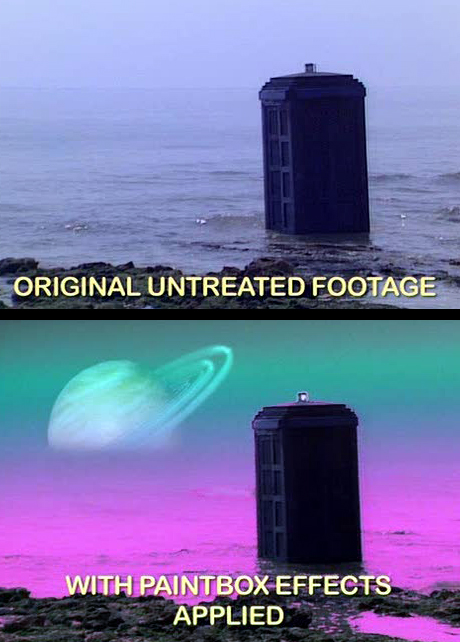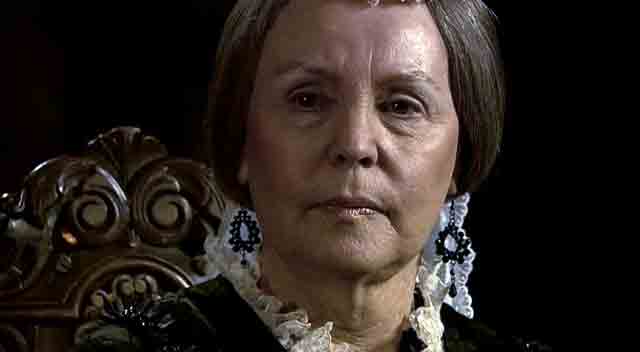Transmat:Doctor Who
The Doctor Who theme was composed by Ron Grainer and made its debut with the first episode of the Doctor Who series in 1963. Although it has undergone many rearrangements, this piece of music has remained the sole theme for the series throughout its history, making it one of the most recognisable themes in television. It is also one of the longest continually-used pieces of theme music in British entertainment history, surpassed only by the theme from Coronation Street (in use since 1960), and the "James Bond Theme" (in use since 1962).
Think Doctor Who is just for boys? Don't you believe it. Not only was the show's very first producer a woman, but it would never have come back without the fierce advocacy of Jane Tranter and Julie Gardner. Considering her importance to Doctor Who it's somewhat ironic that Tranter's only on-screen credits are for Torchwood: Miracle Day. But Gardner, her "partner in crime", is tied only with Russell T Davies as the most prolific producer in Doctor Who history.
The careers of the Fifth, Sixth, Seventh and Eighth Doctors are significantly longer in audio than on television. Check out their latest works at category:2024 audio stories.
Officially, only The Lodger has been explicitly adapted from a comic strip — also called The Lodger.
However, several stories have clearly taken material from comic strips — often those in Doctor Who Magazine. The Shakespeare Code contains a good amount of material from A Groatsworth of Wit, and the notion of the Doctor absorbing the time vortex in order to spare a companion was explored in both The Parting of the Ways and The Flood.
Donald Baverstock was the BBC executive who set the the wheels in motion that eventually led to the creation of Doctor Who. Essentially the original commissioner of the programme, he hired Sydney Newman and later imposed a sense of financial responsibility upon producer Verity Lambert.
But Baverstock wasn't the only BBC executive to have a profound impact on the development of Doctor Who. Make sure you read about Lorraine Heggessey, Mark Thompson, Danny Cohen, George Entwistle, Tony Hall, Shaun Sutton, Sydney Newman and others.- 1966 - The Dalek annual The Dalek Outer Space Book was published by Souvenir Press.
- 1973 - Part two of the TV Comic story Children of the Evil Eye was published.
- 1979 - Part two of Destiny of the Daleks was broadcast on BBC1.
- 1983
- The Doctor Who Technical Manual was published by Sphere Books.
- DWM 81 was published by Marvel Comics.
- 1988 - DWM 141 was published by Marvel Comics.
- 2003 - The Two Doctors was released on Region 2 DVD.
- 2005 - Fear Itself, The Deviant Strain, Only Human and The Stealers of Dreams were published by BBC Books.
- 2010 - DWDVDF 44 was published by GE Fabbri Ltd.
- 2011
- Tsar Wars was released by AudioGO.
- DWA 234 was published by BBC Magazines.
- DWMSE 29 was published by Panini Comics.
- The Gathering was broadcast on BBC One.
- 2012 - Dinosaurs on a Spaceship was broadcast on BBC One.
- 2014
- The Worlds of Doctor Who was released by Big Finish.
- Toby Hadoke's Who's Round 69 was released online.
- The limited-edition box set 50th Anniversary Collector's Edition was released on Region 2 DVD and Blu-ray.
- 2016 - DWFC 80 and DWFC RD 7 were published by Eaglemoss Collections.
- 2020 - The Flying Dutchman / Displaced was released by Big Finish.
- 2021 - The Lost Resort and Other Stories was released by Big Finish.
- ... that McCoy-era script editor, Andrew Cartmel, has written for the Torchwood franchise in the form of the prose story The Wrong Hands?
- ... that David Hasselhoff's singing was so abhorrent to the Doctor that he went to the fall of the Berlin Wall twice just so he could avoid hearing Hasselhoff perform? (PROSE: Autonomy)
- ... that Spiral Yssgaroth was an alternate dimension, one of whose doorways into the main universe was located at Stonehenge? (PROSE: The Pit)
- ... that Martha Jones once thought the Tenth Doctor was taking her to the titular New York City location of the film Breakfast at Tiffany's — but instead he brought her to the Tiffany's on the planet Arkon? (PROSE: Wetworld)
- ... that there were two different kinds of abominable snowman controlled by the Great Intelligence? (TV: The Abominable Snowmen, The Web of Fear)
- 1922 - Actor Royston Tickner was born.[1]
- 1927 - Actor James Culliford was born.[2]
- 1938 - Actor Louis Mahoney was born.[3]
- 1962 - Actor Moya Brady was born.[4]
- 1968 - Actor Louise Minchin was born.[5]
- 1979 - Actor Miles Jupp was born.[6]
- 1991 - Actor Joe Sugg was born.[7]
- 2009 - Actor Ray Barrett died.[8]
- 2014 - Writer Jane Baker died.[9]
- 1967 - Location filming for The Abominable Snowmen continued in Wales. (TCH 11)
- 1968 - Location filming for The Invasion continued. (TCH 13)
- 1982 - Studio filming for Mawdryn Undead took place at BBC Television Centre studio 6. (REF: Doctor Who The Handbook: The Fifth Doctor)
- 1983 - Studio filming for Frontios took place at BBC Television Centre studio 6. (REF: Doctor Who The Handbook: The Fifth Doctor)
- 1994 - Writer John Leekley submitted a much fuller script for the 1996 tele-film than his 24 August draft. Since the draft, a lot of material, including much of the Skaro and Egypt scenes, had been cut. Leekley continued working on his script until it, according to Steven Spielberg, it veered too closely to the Indiana Jones franchise. On 26 September, Spielberg asked Philip Segal to hire a new writer to start over.
- 2007 - Torchwood launched on BBC America, and became the channel's highest rated show of all time. John Barrowman attributed this to the programme not dumbing everything down for its audience like most of America's television.
- 2008 - The Big Finish audio story Home Truths was recorded at the Moat Studios.
- 2009 - The Big Finish audio story Survival of the Fittest (along with bonus story Klein's Story) was recorded at the Moat Studios.
- 2011 - Big Finish's audio anthology The Fourth Doctor Box Set was recorded at Audio Sorcery.
- 2014 - The Big Finish audio story The Fifth Traveller was recorded at the Moat Studios.
- 2016 - Big Finish confirmed the Torchwood One audio box set Before the Fall.
- 2017 - Big Finish's audio anthology The First Doctor Adventures: Volume Two was recorded at the Soundhouse.
- 2020 - The second series of Big Finish's audio series Lady Christina was recorded.
- 2021
- Big Finish's audio anthology Charlotte Pollard: The Further Adventuress was recorded remotely.
- The Big Finish audio story The Annihilators was recorded.
- 2022 - Big Finish's audio anthology Cass was recorded.




